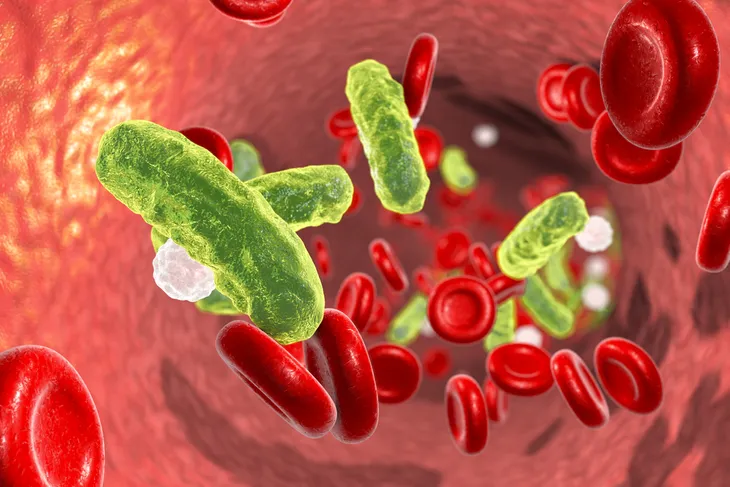“Delirium” is a term often used for someone who is not in their right mind, and often there are underlying health factors. The Mayo Clinic perhaps describes it best: “Delirium is a serious disturbance in mental abilities that results in confused thinking and reduced awareness of your environment.”
The onset of delirium can happen quite suddenly or over a few days, adds the source. Because of the associated confusion, it can sometimes be mistaken for dementia, so it’s important to have it sorted out by a medical professional. Here are eight reasons a person may experience delirium…
1. Medications
Sometimes medications can have side effects such as lack of alertness, but delirium can be triggered by prescription drugs (or a combination of them), notes the Mayo Clinic.
These medications that can be delirium triggers include drugs for pain, sleep, mood disorders (anxiety and depression), allergies (antihistamines), Parkinson’s disease medications, anti-convulsants and asthma medications, according to the source.
2. Substance Withdrawal
If you’re coming off alcohol in particular, you might experience Alcohol Withdrawal Delirium (AWD), according to Healthline.com. This serious form of withdrawal “causes sudden and severe problems in your brain and nervous system,” according to the source.
AWD only affects people who have been heavy drinkers that suddenly stop, or try to come off alcohol to quickly, adds the source. Alcohol suppresses certain neurotransmitters in your brain, which adapt by working harder to function properly. When you stop drinking too fast, the neurotransmitters still try to compensate, which sends them into a state of “overexcitement,” explains the source.
3. Sepsis
This is a life-threatening response to an infection that often strikes the elderly, or those with compromised immune systems. The immune system basically kicks into high gear, causing a variety of symptoms.
An article published by MedScape in 2010 explains that cognitive decline can follow cases of severe sepsis. “Delirium, hypoperfusion (reduced blood flow), and inflammation may underlie the cognitive and physical decline seen after severe sepsis,” notes the source. It adds that untreated delirium “accelerates Alzheimer’s disease”.
4. Kidney Diseases
Healthline.com lists glomerulonephritis, a serious kidney disease, and chronic kidney disease as two possible causes of delirium. Glomerulonephritis is inflammation of the kidneys that can lead to kidney failure.
Meanwhile, chronic kidney disease is a “progressive and irreversible destruction of the kidneys,” notes Healthline. High blood pressure and diabetes can lead to this condition, it adds. When you kidneys fail, it’s bad news all around – you need them to rid your body of water-soluble waste, and they also produce red blood cells, among other functions.
5. Typhus
This is caused by bad bacteria called Rickettsia, which can be transmitted to you if you’re bitten by certain insects like fleas or mites. The bacteria can run rampant in your bloodstream once it enters through scratching or other means.
An early outbreak of typhus was documented in 1489, and it claimed 17,000 Spanish soldiers, according to MedicineNet.com. The written account of the disease mentioned rashes, sores, and delirium. While it was obviously once a major problem, it is now considered a rare disease.
6. Yellow fever
This is an infection spread by mosquitoes, but it’s mostly isolated to South America and Africa. However, if you’re traveling, you could be at risk. The Benefis Health System in Montana explains there are usually three stages of Yellow Fever.
Stage 3 of the disease, which the source calls “intoxication,” can affect major organs such as the liver and kidneys. The symptoms associated with this stage can include delirium, and it can also lead to seizures, coma and even death.
7. Mad Cow Disease
You probably already know there’s a human form of this alarmingly-named disease, and it can trigger a variety of symptoms. It’s also called Creutzfeldt-Jakob disease when it occurs in people, and it’s “an infection of the brain that produces rapidly progressive dementia,” according to BrightFocus.org.
While delirium-like symptoms can occur due to the quick cognitive decline, sources note the disease can cause loss of balance, seizures, muscle spasms, difficulty with speech, and even blindness. It is unlike Alzheimer’s, which progresses slowly over time.
8. Urinary Tract Infections
These UTIs commonly involve the bladder and kidneys and are caused by bacteria traveling up the urethra. They’re much more common in women, as their anatomy has shorter urethras and therefore a shorter route for the germs to travel.
While a UTI can be unpleasant and downright painful for a healthy person, if they are already experiencing symptoms of dementia, a UTI can cause a host of behavioral changes in a short amount of time (commonly referred to as a delirium). “Symptoms of delirium can range from agitation and restlessness to hallucinations or delusions,” explains the source.











